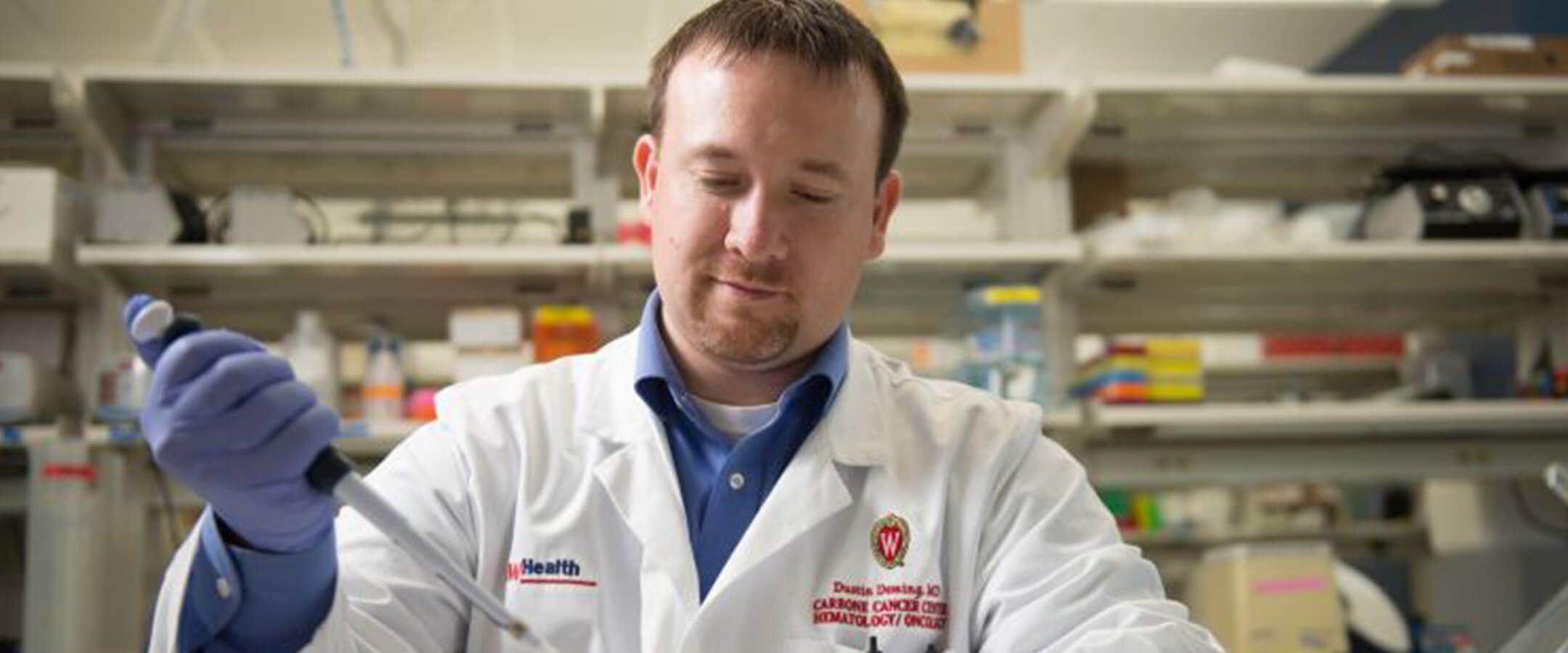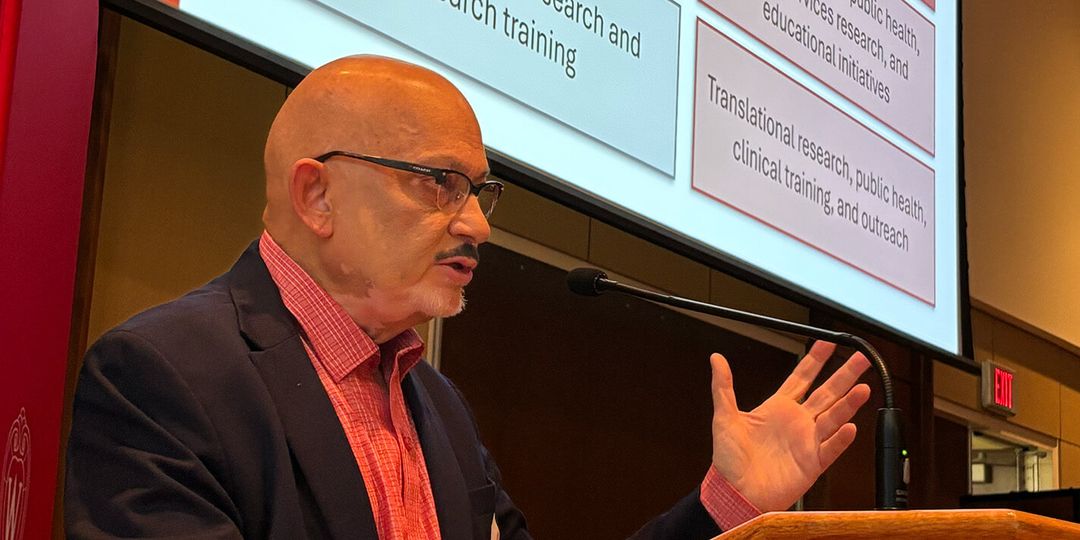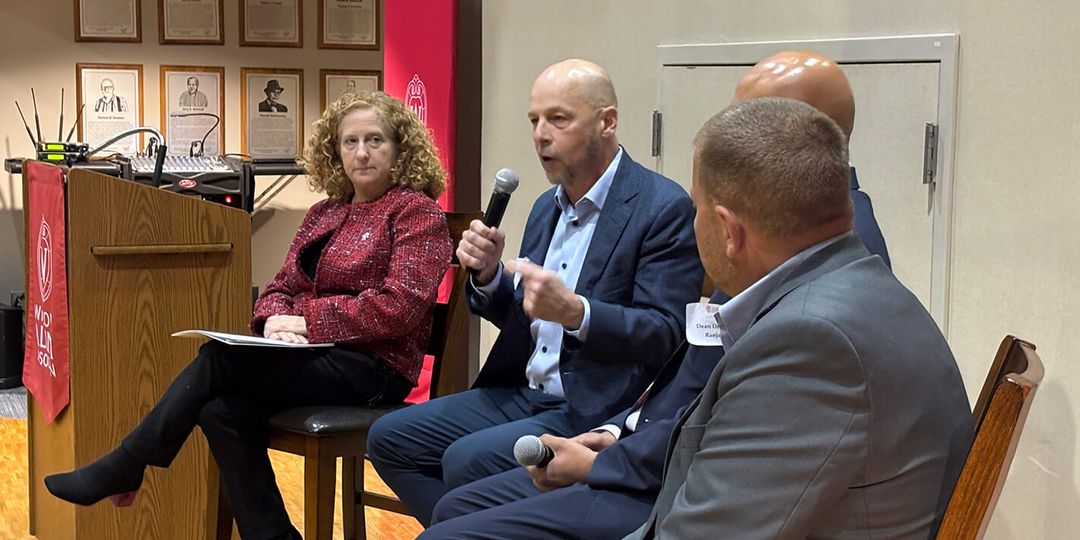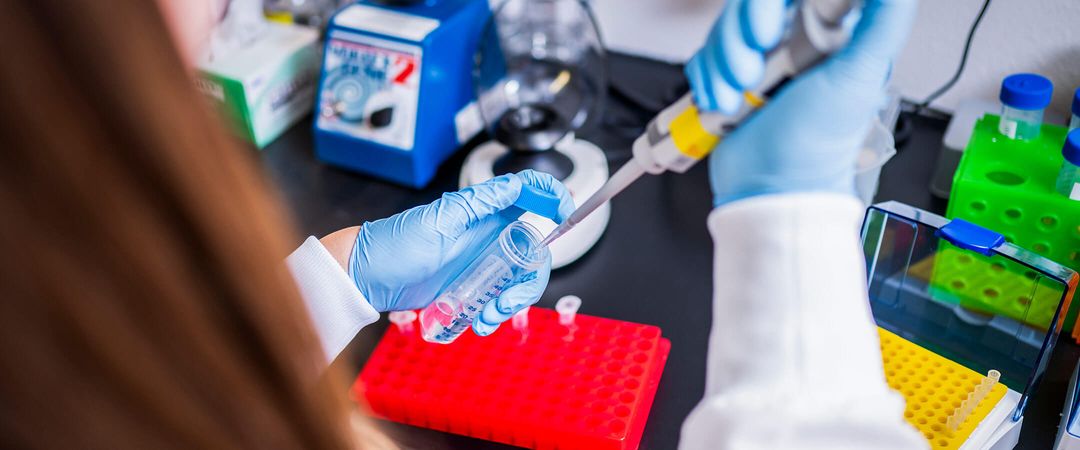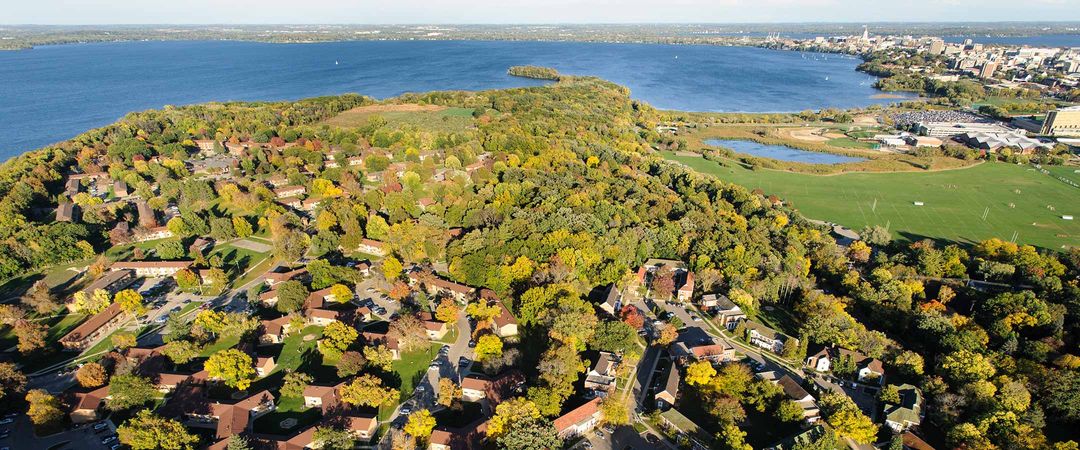Every year, more than 32,000 Wisconsin residents are diagnosed with cancer. Despite its prevalence, treatment options have remained limited, often focusing on the most common types of the disease. However, advancements in precision medicine are changing that by offering personalized treatment based on a patient’s genetics, environment, and lifestyle. This approach to health care reflects UW Health’s broader commitment to transforming the way Wisconsin residents receive support, from cancer treatment to a wide range of medical innovations.
“For nearly every type of cancer now, it is standard of care for some molecular testing to be done,” says Dustin Deming MD’07, a medical oncologist and laboratory researcher at UW Health and codirector of the Precision Medicine Molecular Tumor Board (PMMTB). “Unfortunately, when many oncologists and hematologists were trained, this testing didn't exist. So, there’s a huge need for physicians to understand these results.”
As the only comprehensive cancer center in Wisconsin, the UW Carbone Cancer Center (UWCC) is uniquely positioned to offer this transformative support to doctors and their patients across the state. In 2015, UWCC partnered with regional medical centers to form the PMMTB, offering customized recommendations to patients with active, incurable cancers. Oncologists can submit a patient’s tumor for genetic testing, which is then reviewed by the tumor board, a collaborative team of expert clinicians, pathologists, and scientists. Funded in part by the state budget, the board provides its findings virtually and at no cost to patients, ensuring that Wisconsin residents from all areas can access cutting-edge cancer care.
Over the past 10 years, the PMMTB has sequenced more than 13,000 patients, and it reviews more than 3,000 cases annually. By leveraging this vast database, the PMMTB uncovers lesser-known treatment options, drug combinations, and therapies that might otherwise be overlooked. Genetic testing also helps identify clinical trials that patients may not have known about or been considered for otherwise. “We think about some of these molecular alterations being extremely rare but when you start sequencing 13,000 patients it’s amazing how many rare things you find,” says Deming.
And UW Health’s commitment to advancing health care goes beyond cancer treatment. From historic organ transplants to Alzheimer’s disease research to safer opioid prescribing, UW Health is at the forefront of keeping Wisconsin healthier. These initiatives, including the Precision Medicine Medical Tumor Board, are all part of the UW’s ongoing efforts to improve health outcomes for individuals and communities across the state. By providing personalized care, advancing medical research, and fostering collaboration, UW Health is shaping a future where health care is more accessible, efficient, and effective for everyone.
